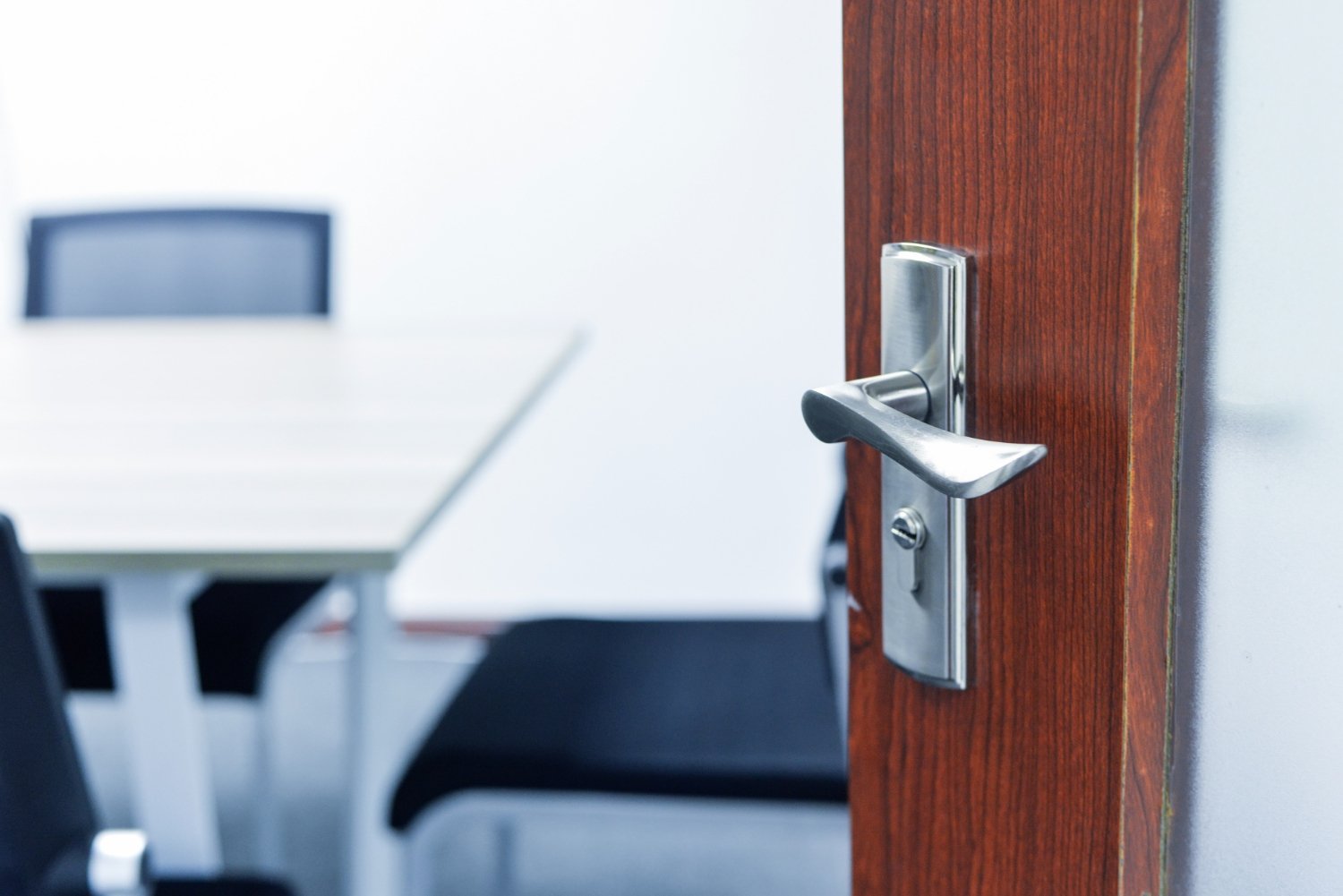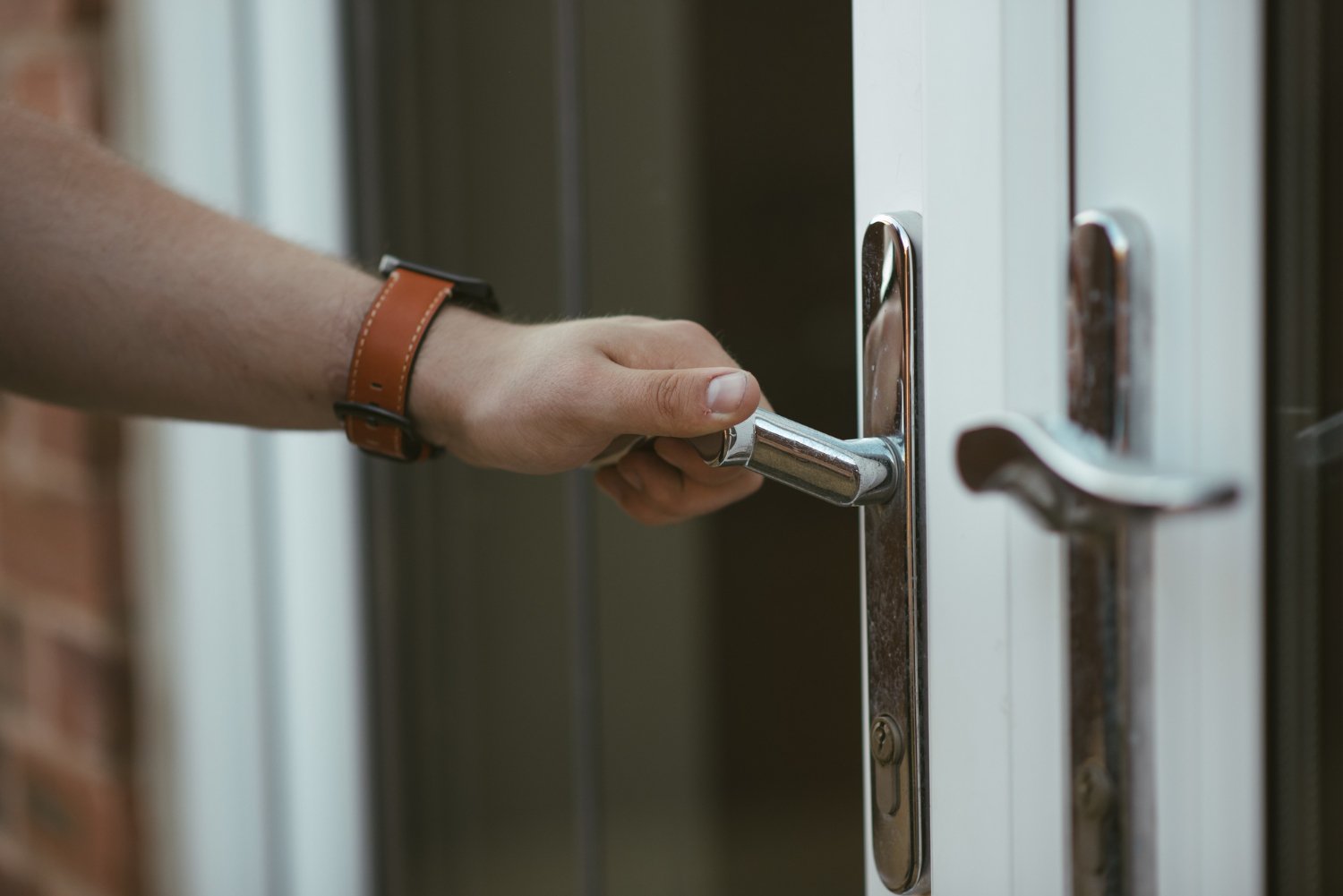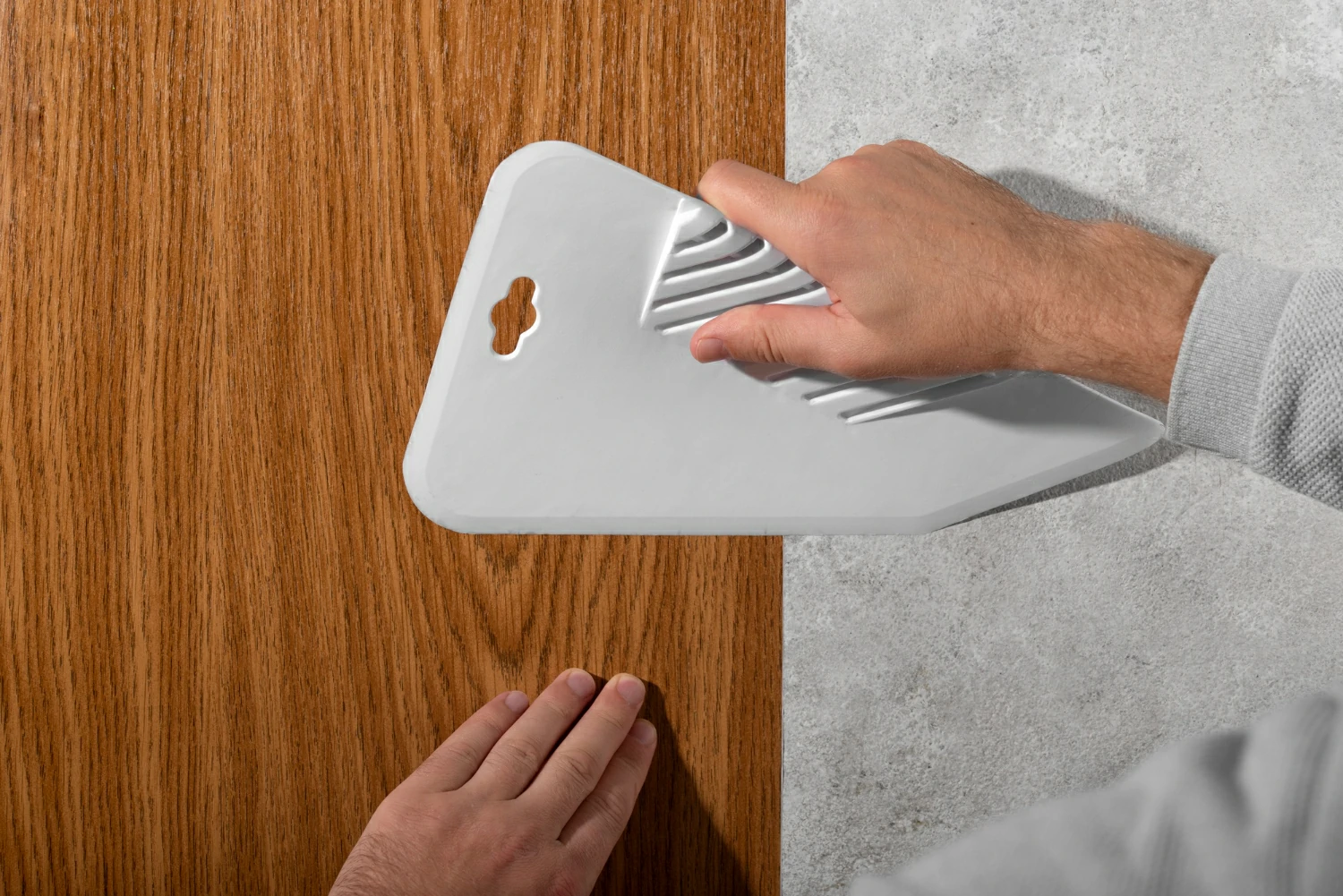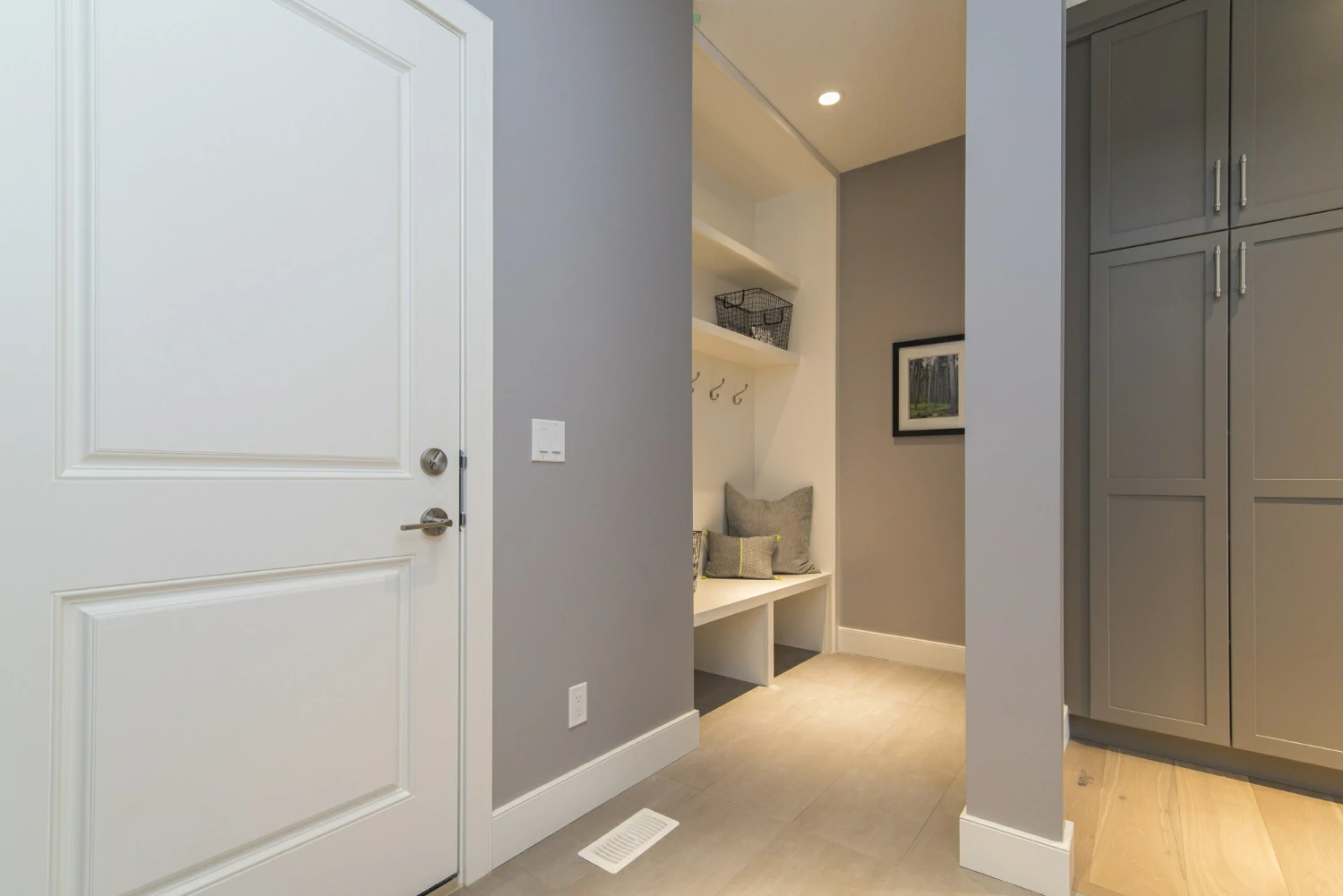Do hotel doors lock automatically? Answer is – Many modern hotels use automatic locking systems that engage once you close the door. This ensures security and convenience for guests. However, it’s always a good practice to double-check the lock yourself, as systems can vary by hotel and occasional malfunctions can occur.
Summary
- Most modern hotels use automatic door locking systems.
- These systems offer convenience and enhanced safety.
- Double-checking the lock is still recommended.
- Types of automatic hotel door locks may differ.
- Malfunctions can happen – always be aware.
Do Hotel Doors Lock Automatically?

Feeling safe and secure is a top priority when traveling, and that extends to your hotel accommodations.
While many aspects of staying in a hotel are focused on comfort and convenience, knowing that your belongings and your personal safety are well-protected is paramount.
That’s where hotel door locks come into play. Traditional keyed entry is still found in some establishments, but the rise of automatic door locking systems is changing the landscape of hotel security.
Let’s delve into the importance of these systems and how they work.
The Importance of Safety and Security in Hotels
Hotels have a fundamental responsibility to provide a safe environment for their guests. This includes measures such as well-lit common areas, security personnel, and of course, reliable room door locks.
Incidents of theft or unauthorized entry, while not the norm, can unfortunately occur. A sturdy door lock is a crucial line of defense, creating a barrier and adding peace of mind during your stay.
The Rise of Automatic Door Locking Systems
The evolution of hotel door locks has moved in tandem with technological advancements. Here’s why automatic locking systems are becoming increasingly prevalent:
Security Enhancement: Automatic locks provide an added layer of security. Unlike traditional keys that can be lost or copied, automatic systems often use unique digital codes or encrypted key cards, reducing the risk of unauthorized access.
Guest Convenience: No more fumbling for keys! Automatic locks often allow you to simply close your door, and it engages securely behind you. This eliminates the worry of whether you remembered to lock up.
Operational Efficiency for Hotels: Automatic systems streamline many processes for hotel staff. These systems can track entries and exits, helping with security monitoring and potentially assist in investigations should any incidents occur.
Sarah Peterson Expert Opinion
Sarah Peterson, Hotel Security Consultant with over 15 years of experience “Automatic door locks are a game-changer for hotel security. The technology offers advanced features and a higher level of protection for guests. While these systems are generally very reliable, it’s still important for travelers to be aware and ensure their room door is always secured properly.”
Do Hotel Doors Lock Automatically?

The short answer is: most modern hotels do have automatic door locking systems. However, there’s nuance to consider, and understanding how these systems operate will set your mind at ease as a traveler.
1. How Automatic Door Locks Work in Hotels
While different technologies are in use, here’s a breakdown of the most common mechanisms and the principles behind them:
The Key is in the Code: The majority of automatic hotel locks use some form of keyless entry. This usually means you’ll be issued an RFID keycard or fob. These contain a unique digital code that only corresponds to your room and your assigned stay period. This enhances security compared to traditional keys that can be easily copied
Swipe, Tap, or Unlock via App: How you interact with the lock varies. You might swipe your keycard across a magnetic reader, tap a key fob on a sensor, or even unlock the door using an app on your smartphone (often utilizing Bluetooth technology).
Sensors for Safety: Many systems won’t simply lock the moment you close the door. Sensors built into the door frame make sure the door is fully shut before the latch and deadbolt are engaged. This helps prevent accidental lockouts.
The Importance of Battery Power: Most automatic door locks don’t rely on the hotel’s main electrical system. They use batteries, so even in power outages, they remain operational. Hotels diligently replace these batteries to avoid issues.
2. The Benefits of Automatic Door Locks for Guests
Automatic locks offer both practical benefits and peace of mind:
Ultimate Convenience: Say goodbye to fumbling with keys! Once you close the door behind you, these systems usually lock it automatically. This is a big plus when you’re juggling luggage or simply preoccupied.
No “Did I Lock the Door?” Worries: We’ve all had those moments of doubt after leaving a hotel room. Automatic locks remove that uncertainty, giving you one less thing to think about.
Heightened Security: The unique digital codes or encryption used in automatic systems are harder to breach than physical keys. This reduces the risk of unauthorized entry.
Lost Key? Less of a Hassle: No more frantic searches if you misplace your keycard. Most hotels can quickly deactivate a lost card and issue you a new one.
Mark Thompson Expert Opinion
Mark Thompson, Senior Security Manager at the Grandview Hotel Group (20+ years of experience) “Automatic locks offer a significant security advantage. Guests appreciate how the technologies blend convenience with that extra layer of protection. However, I always advise travelers to visually confirm their door is locked, developing that security-conscious habit.”
Types of Automatic Hotel Door Locks

The world of automatic entry is wonderfully diverse. While the concepts are similar, knowing about specific types of locks will demystify the process for you as a guest.
1. RFID Key Cards: The Familiar Standard
Radio-frequency identification (RFID) is the most widespread technology in automatic hotel door locks. Here’s the lowdown:
That Little Card in Your Wallet: Your RFID keycard has a tiny embedded chip and antenna. This chip holds a unique code assigned only to your room and your stay dates.
Contactless Communication: Waving or tapping your card near the door’s reader sends this code wirelessly. If it’s valid, the lock disengages. For more information see how RFID works.
Why They’re Popular: RFID is cost-effective, reliable, and user-friendly. Hotels can easily deactivate and reissue lost keycards.
2. Mobile Key Systems: Your Smartphone Is the Key
The line between our phones and the physical world continues to blur. Increasingly, hotels are offering mobile key systems with exciting advantages:
An App to Unlock: You’ll download the hotel’s proprietary app which acts as your digital key.
Tap-to-Unlock: The app usually communicates with the door lock via Bluetooth or NFC (near-field communication). A simple tap on the reader with your phone might be all it takes!
Lose Your Phone, Not Your Key: Most of us are far less likely to misplace our smartphones compared to a small keycard. Plus, hotels can remotely disable the app function if needed.
Streamlined Check-in: Some mobile key systems even let you bypass the front desk and go straight to your room after online check-in.
3. Other Advanced Locking Mechanisms
While RFID and mobile keys reign supreme, be aware that more cutting-edge options exist:
Biometric Locks: Fingerprint scanning or facial recognition technology is found in ultra-high-security hotels. While expensive, this provides a nearly foolproof way to verify a guest’s identity.
PIN Code Keypads: Some systems forgo keycards and phones entirely. You’ll receive a personalized PIN code to enter on a keypad by the door. This is ideal for minimizing physical items to carry.
Hybrid Systems: Hotels might sometimes combine technologies. For instance, you may need your keycard to operate the elevator to reach your floor, but then use a mobile key to open your specific room door.
Olivia Bennett Expert Opinion
Olivia Bennett, Technology Consultant for the Hospitality Industry “We’re seeing an exciting trend towards choice in automatic door locks. Hotels recognize that guests have different preferences. Systems that offer both mobile keys and RFID keycards provide the most flexibility and ensure a positive experience for everyone.”
What to Do When Automatic Door Locks Malfunction

Even the most reliable technology has its hiccups. Here’s your action plan if your hotel door lock isn’t cooperating:
1. Troubleshooting Steps
Before calling for help, try these basic steps – they often resolve the problem quickly:
Check the Batteries: Many keycards (especially RFID) have small batteries embedded. Your card may have lost power – ask the front desk for a quick replacement to see if that fixes it.
Clean Is Key: Sometimes, the reader on the door can get a bit dusty or smudged. Use your shirt sleeve or tissue to give the reading surface a gentle wipe.
Ensure Complete Closure: Make sure the door is fully shut. Automatic systems often won’t lock if there’s the slightest gap due to safety sensors.
User Error Happens: Take a moment and double-check that you’re using the keycard or your phone correctly according to the hotel’s instructions.
Check Your Booking Period: Your keycard or mobile key may only be valid for your assigned check-in and check-out dates and times.
2. Contacting Hotel Staff for Assistance
If your troubleshooting doesn’t solve the issue, it’s time to enlist the experts – the hotel staff. Here’s how to handle this:
Don’t Delay: Promptly report the problem to the front desk, either by phone or in person. Don’t leave your room unsecured out of frustration.
Be Specific: Clearly explain the issue (won’t unlock, lock won’t engage, etc.). If you had an error message on the door reader, describe it to staff.
Maintain Patience: Staff are trained to handle these situations. While inconvenient, remain calm and they’ll likely have a solution for you very soon.
What will likely happen when you report it
Hotel staff are well-equipped to address lock malfunctions. Here are some potential resolutions:
- Reactivating Your Key: If it’s a keycard or mobile key issue, staff might simply reissue a new one or reactivate your existing key.
- Manual Reset: Some systems have a manual override function that staff are authorized to use.
- Maintenance Checkup: If a more technical fault is suspected, hotel maintenance personnel will inspect the lock and make repairs or replacements.
James Lee Expert Opinion
James Lee, Hotel Operations Manager with 15+ years experience “Guest safety is always our top concern. While automatic lock malfunctions are infrequent, we have well-established procedures in place to swiftly troubleshoot them. Open communication from guests is key to ensure their rooms stay secure.”
Important Safety Considerations

1. Always Verify Your Door is Locked, Even with Automatic Systems
Technology is wonderful, but it’s wise to develop a security-conscious habit. Here’s why:
Peace of Mind: Taking a second to tug the handle confirms the lock has fully engaged. This eliminates lingering “did I, didn’t I?” doubts that can ruin your time away.
Malfunctions Do Happen: Even the most reliable automatic system can occasionally have a glitch. Double-checking becomes your backup security measure.
Personal Responsibility is Key: Hotels do their best to ensure your safety, but ultimately, being proactive about your belongings and room security contributes to a smooth stay.
2. Being Aware of Your Surroundings While Entering and Exiting Your Room
Situational awareness is a powerful protective tool for travelers. Keep these tips in mind as you come and go from your hotel room:
Minimize Distractions: Put your phone away as you approach your door. Focus on the task of unlocking and entering safely. Avoid having your attention deeply divided.
Observation is Key: Take a quick glance around as you unlock the door. If anyone seems to be loitering suspiciously near your room, it might be wise to discreetly circle back to the front desk rather than entering alone.
If It Feels Off, It Might Be: Always trust your instincts. If something feels unsafe, don’t hesitate to seek assistance from hotel staff.
3. Reporting Any Suspicious Activity to Hotel Staff
Hotels have security protocols in place, but they rely on guests to be their eyes and ears. Here’s when to speak up:
Someone Tampering with Doors: If you witness anyone trying to force open a hotel room door or seeming to manipulate a lock, immediately report it, providing the room number if possible.
Lost or Stolen Keys: If your keycard or mobile key access is compromised, inform the front desk immediately so they can deactivate it.
Unsettling Behavior: Don’t hesitate to report anyone who makes you feel uneasy, whether they’re a fellow guest or not. Hotel staff are trained to assess and address security concerns.
Sarah Ellis Expert Opinion
Sarah Ellis, Travel Safety Blogger and Advocate “Staying safe when traveling is about layering your protection. Automatic locks are a great asset, but combining them with your own awareness and proactively reporting concerns to the hotel creates a multi-pronged approach to security.”
Can Guests Disable Automatic Locking Systems?

The answer is usually no. Here’s why hotels generally don’t allow guests to disable automatic locking:
Security Focus: Automatic locks are a core part of the hotel’s security infrastructure. Allowing disabling opens up potential liabilities if a guest then leaves their room unsecured.
Fire Safety Regulations: In many regions, fire codes require that hotel room doors automatically lock upon closure to help contain the spread of smoke and flames in an emergency.
Operational Efficiency: Automatic locks streamline housekeeping and maintenance. Staff can know a room is truly unoccupied and ready for service if the door locks when it’s closed.
Potential Reasons Why a Guest Might Want to Disable Automatic Locking
While not typically permitted, there are understandable scenarios where a guest might consider wanting this option:
Medical Needs: Individuals with health conditions that might require urgent exit (without fumbling with keys) may need special arrangements made with the hotel.
Service Animals: Trained service animals might be better able to enter and exit a room independently if the door wasn’t automatically locking.
Deliveries and Quick Errands: Guests expecting room service deliveries or making frequent, short trips out of their room (perhaps photographers with equipment nearby) might seek temporary disabling.
Accessibility Considerations: Depending on an individual’s dexterity, dealing with keycards or mobile keys may be challenging, potentially making a non-locking door more accessible.
Dr. Amanda Walker Expert Opinion
Dr. Amanda Walker, Disability Rights Advocate and Accessibility Consultant “While automatic hotel doors are important for security, it’s crucial for hotels to work with individuals with disabilities to find solutions that balance security needs with accessibility. Advance communication is key.”
The Future of Hotel Door Locking Technology

Hotels are constantly seeking ways to improve efficiency and cater to guests’ needs. Door locks are a central part of this ongoing innovation. Here are key trends to anticipate:
1. Advancements in Smart Lock Technology
The world of “smart home” devices is exploding, and hotels won’t be left behind. Expect to see:
Voice Control: Imagine unlocking your hotel room with a simple voice command via an in-room smart speaker. This offers not only convenience but potential accessibility benefits.
Enhanced Mobile Integration: Beyond just unlocking, mobile keys could interact with other hotel systems. You might order room service, adjust lighting, or control the temperature, all through your phone’s hotel app.
Biometric Leaders: While costly now, fingerprint or facial recognition locks may become more widespread in luxury hotels, offering the ultimate in security and frictionless entry.
2. Enhanced Security and Personalization
Technology will work behind the scenes to both protect guests and tailor their experience:
AI-Powered Threat Detection: Imagine locks linked to hotel security systems using artificial intelligence. These systems could identify potential suspicious behavior patterns, allowing staff to proactively address concerns.
Data-Driven Personalization: With guest consent, hotels can use secure data from past stays to customize door lock preferences. A frequent business traveler might automatically have a mobile key setup, while a family might get an RFID keycard for each member.
Blockchain Security: Blockchain, the technology behind cryptocurrency, offers a decentralized and incredibly secure way to manage digital keys. This could virtually eliminate hacking and duplication concerns.
William Thompson Expert Opinion
William Thompson, Founder of SmartStay Hospitality Tech Solutions “The future of hotel door locks is about seamless integration and intelligent security. Guests want convenience without compromising peace of mind. The technology that achieves that balance will become the industry standard.”
Conclusion
Automatic door locking systems have significantly changed the landscape of hotel security. While traditional keyed entry still exists, the shift towards automatic technology is clear. These systems offer both enhanced protection for guests and a streamlined experience.
Key things to remember:
- Most modern hotels embrace automatic locking systems for guest room doors.
- Technologies like RFID keycards, mobile keys, and other advanced options are now widely used.
- Understanding how these systems work empowers you as a traveler to maximize your safety.
- Even with automatic locks, it’s vital to double-check that your door is fully closed and engaged.
- Situational awareness while entering and exiting your room is always a smart travel practice.
While technology plays a large role, hotels are ultimately focused on creating a safe and welcoming environment. Open communication with staff regarding any door lock malfunctions or security concerns is essential.
FAQs
1. Are automatic hotel door locks truly secure?
Automatic locks offer a higher level of security compared to traditional keys. Encrypted keycards, mobile keys with secure protocols, and advanced systems like biometrics are difficult for unauthorized individuals to breach. However, no system is foolproof, which is why personal vigilance remains important.
2. What if my hotel keycard or mobile key stops working?
Immediately contact the front desk. They can quickly troubleshoot, reissue a keycard, or reactivate your mobile key access.
3. Can I request a room without an automatic door lock?
Most hotels won’t allow disabling of automatic locks due to security and liability reasons. However, if you have a compelling need for a non-locking option, contact the hotel well in advance to discuss possible accommodations.
4. With automatic locks, should I still use the room’s deadbolt or security latch?
Absolutely! Think of these extra features as another layer of protection, especially when you’re in the room for the night or an extended period.
5. How will I know what kind of automatic locking system my hotel uses?
Check the hotel’s website or inquire when booking. This information will often be described in the room amenities or technology features section.







